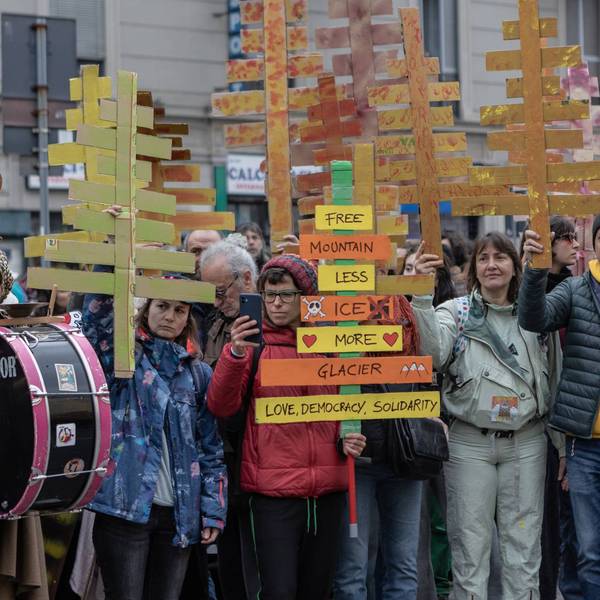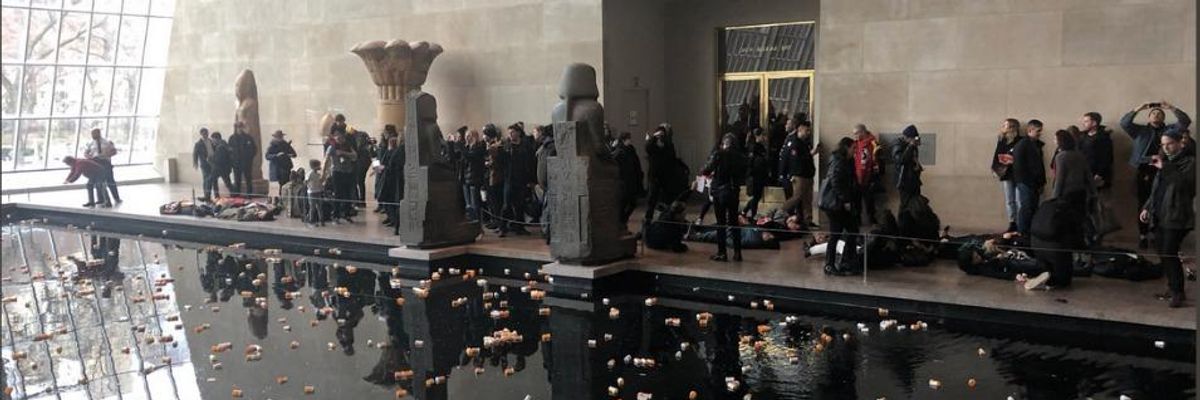Calling attention to the huge contribution the influential Big Pharma family the Sacklers, has made to the Metropolitan Museum of Art while also setting the groundwork for the opioid addiction epidemic, dozens of protesters staged a demonstration over the weekend in the $3.5 million wing the family donated to the museum.
Led by photographer Nan Goldin, founder of Prescription Addiction Intervention Now (PAIN), the protesters threw prescription pill bottles labeled "Prescribed to You by the Sackler Family" into the reflecting pool in the Sackler Wing.
Chanting, "Shame on Sackler" and "The Sacklers knew their pills would kill," the demonstrators argued that the family knew one of its top-selling pharamaceutical products, OxyContin, was highly addictive and dangerous for long-term use, even though it was marketed for such in the 1990s.
The Sackler family owns Purdue Pharma, the company behind the popular painkiller OxyContin. Purdue spent hundreds of millions of dollars in the 1990s convincing doctors and patients that OxyContin should be used for chronic pain rather than for acute, temporary pain that a patient might have after surgery, or for end-of-life care.
OxyContin's active ingredient is oxycodone, a highly addictive opiate that's chemically very similar to heroin. As Purdue pushed the drug, opioid overdoses in the U.S. went up 200 percent from 2000 to 2014. Nearly 64,000 people died of drug overdoses in 2016, with 66 percent of those deaths involving opioids.
In 2007, Purdue executives pleaded guilty to misbranding OxyContin as a non-addictive long-term solution to pain. The company has since been sued by 14 states including Alabama, Washington, and Montana for its deceptive marketing practices.
At the protest, demonstrators held a "die-in" and handed out pamphlets to onlookers, sharing statistics on the opioid epidemic and demanding that the Sacklers help Americans suffering from addiction.
"It's time for the family that helped create this problem answer to the people worst affected," the pamphlet read. "We demand they fund treatment...We intend to hold the Sacklers accountable, and put social and political pressure on them to respond meaningfully to this crisis."




